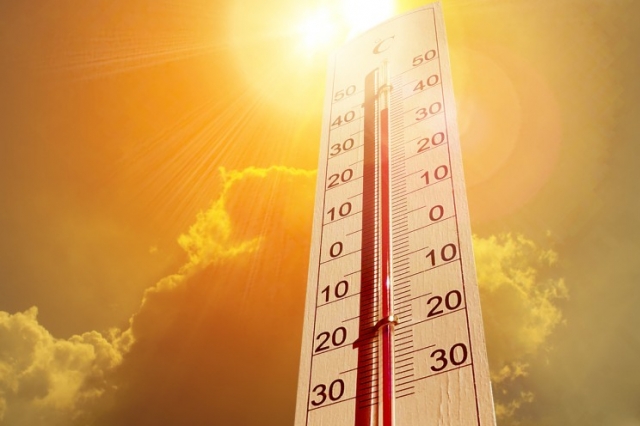NCDC Warns Population about Expected Heatwave
A heatwave is expected to hit Georgia in the next few days. Reportedly, the last decade of August will be especially hot in the country. Accordingly, the National Center for Disease Control Warns Population about the expected heatwave and gives recommendations in order to protect their health during the hottest days of summer.
The National Center for Disease Control says that public health recommendations should be considered in five main areas:
Keep your home cool
Try to keep your home cool. Check the temperature in your home from 08:00 am to 10:00 am, 13:00 pm and at night - from 22:00 pm. Ideal daytime temperatures should not exceed 32°C during daytime and 24°C - at night. This is especially important for children and people over the age of 60, as well as for those diagnosed with chronic illnesses.
Open the windows at night and leave them open until morning to cool off.
Reduce daytime heat penetration in your house - close windows and blinds, especially on the sunny side. Turn off electrical appliances and artificial lighting whenever possible.
Hang wet towels in the house, to keep it moist and cool.
If you have an air conditioner at home, close the doors and windows to use electricity efficiently. The fan will only work if the temperature does not exceed 35°C. And if the temperature exceeds 35°C, it will not be able to fight heat-related problems.
Get plenty of water.
It is strongly recommended to drink mineral waters with low to medium salt levels.
Avoid the heat.
Choose the coolest room in your home, including while sleeping at night.
If it is not possible to keep a cool temperature at home, try to spend 2-3 hours a day in a cool place (for example, in a public building where there is air-conditioning).
Avoid walking in the streets during the hottest periods of the day.
Avoid highly intensive physical activity.
Relax in the shade and avoid being under the sun.
Do not leave children and pets in parked vehicles!
Cool off the body and protect the body from dehydration - take a cool shower, or use ice packs, a wet towel, etc.
When walking down the street, wear natural materials, light colors, loose clothing, a hat or cap, or umbrella, and sunglasses.
Get plenty of liquids besides alcohol, sweets, and drinks that contain caffeine.
Eat often and have a small amount of food each time. Avoid eating food which contains a high amount of proteins.
Help others:
Inform your loved ones - family members, friends, neighbors, especially those who live alone, about the recommendations on health care during the hot weather, so that everyone knows how to help themselves and other people.
If you know sick or lonely elderly people who need your help, visit them daily.
Keep an eye on the weather forecast through television, radio or the Internet.
What to do if you feel sick:
If you feel dizzy, weak, thirsty, or have a headache, immediately move to a cool place and measure your body temperature.
Drink water or fruit juice.
If you have painful muscle spasms (especially in the feet, hands or abdomen), you may need to take electrolyte-containing liquids. If these symptoms last for more than one hour, contact your doctor immediately.
Talk to your doctor if you are experiencing unusual symptoms and these symptoms last for a long time.
If anyone feels uncomfortable, take them to a cool place to rest. Give them plenty of fluid.
Contact your doctor if you or another person has difficulty breathing, has chest pain, feels weak, or dizzy.
Further information and recommendations on healthcare during hot days are available on the website of the National Center for Disease Control and Public Health - www.ncdc.ge
By Ana Dumbadze












